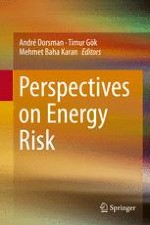2014 | OriginalPaper | Buchkapitel
5. The Natural Gas Revolution and Central Asia
verfasst von : Robert W. Kolb
Erschienen in: Perspectives on Energy Risk
Verlag: Springer Berlin Heidelberg
Aktivieren Sie unsere intelligente Suche, um passende Fachinhalte oder Patente zu finden.
Wählen Sie Textabschnitte aus um mit Künstlicher Intelligenz passenden Patente zu finden. powered by
Markieren Sie Textabschnitte, um KI-gestützt weitere passende Inhalte zu finden. powered by
